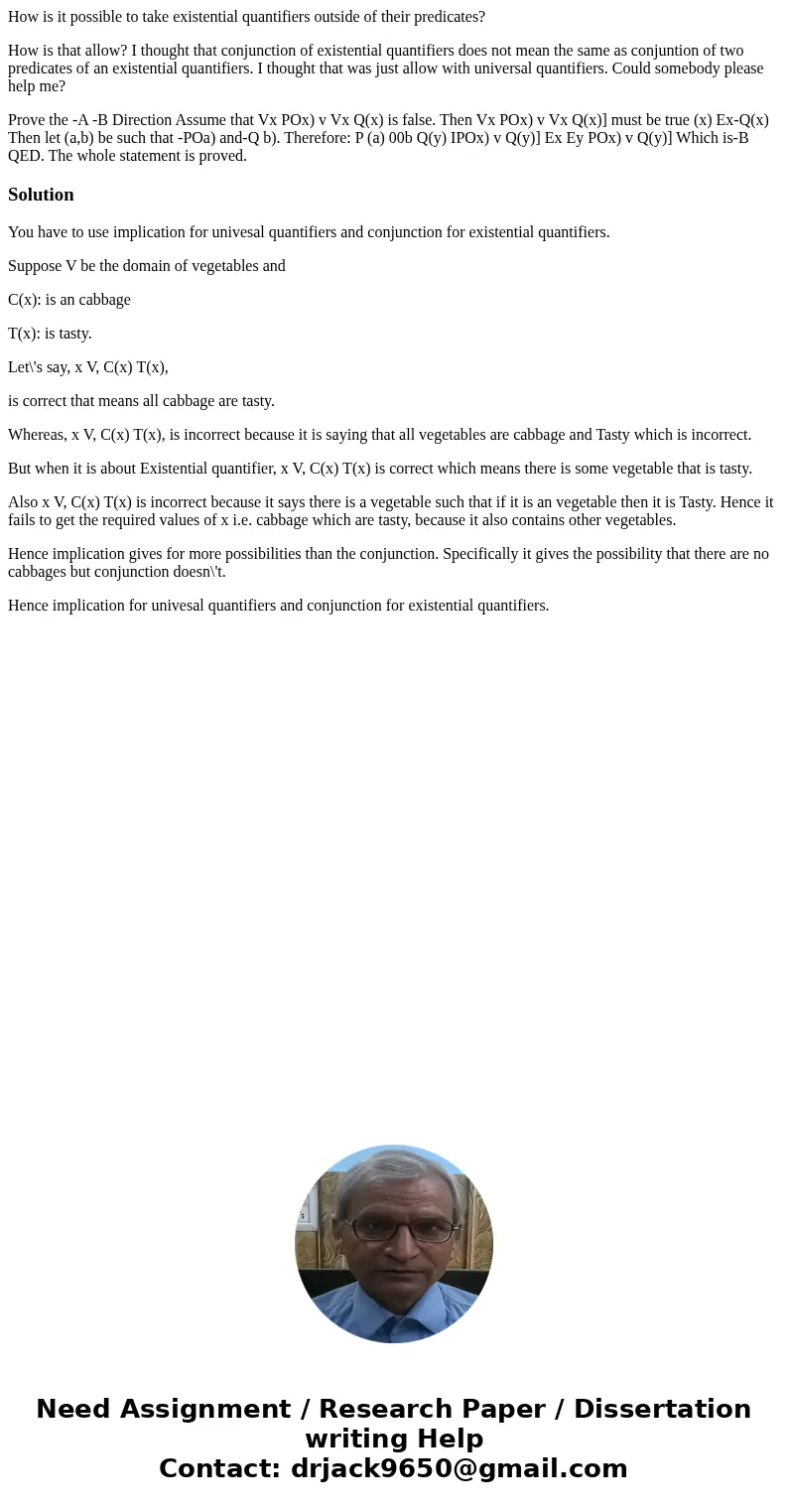How is it possible to take existential quantifiers outside o
How is it possible to take existential quantifiers outside of their predicates?
How is that allow? I thought that conjunction of existential quantifiers does not mean the same as conjuntion of two predicates of an existential quantifiers. I thought that was just allow with universal quantifiers. Could somebody please help me?
Prove the -A -B Direction Assume that Vx POx) v Vx Q(x) is false. Then Vx POx) v Vx Q(x)] must be true (x) Ex-Q(x) Then let (a,b) be such that -POa) and-Q b). Therefore: P (a) 00b Q(y) IPOx) v Q(y)] Ex Ey POx) v Q(y)] Which is-B QED. The whole statement is proved.Solution
You have to use implication for univesal quantifiers and conjunction for existential quantifiers.
Suppose V be the domain of vegetables and
C(x): is an cabbage
T(x): is tasty.
Let\'s say, x V, C(x) T(x),
is correct that means all cabbage are tasty.
Whereas, x V, C(x) T(x), is incorrect because it is saying that all vegetables are cabbage and Tasty which is incorrect.
But when it is about Existential quantifier, x V, C(x) T(x) is correct which means there is some vegetable that is tasty.
Also x V, C(x) T(x) is incorrect because it says there is a vegetable such that if it is an vegetable then it is Tasty. Hence it fails to get the required values of x i.e. cabbage which are tasty, because it also contains other vegetables.
Hence implication gives for more possibilities than the conjunction. Specifically it gives the possibility that there are no cabbages but conjunction doesn\'t.
Hence implication for univesal quantifiers and conjunction for existential quantifiers.

 Homework Sourse
Homework Sourse